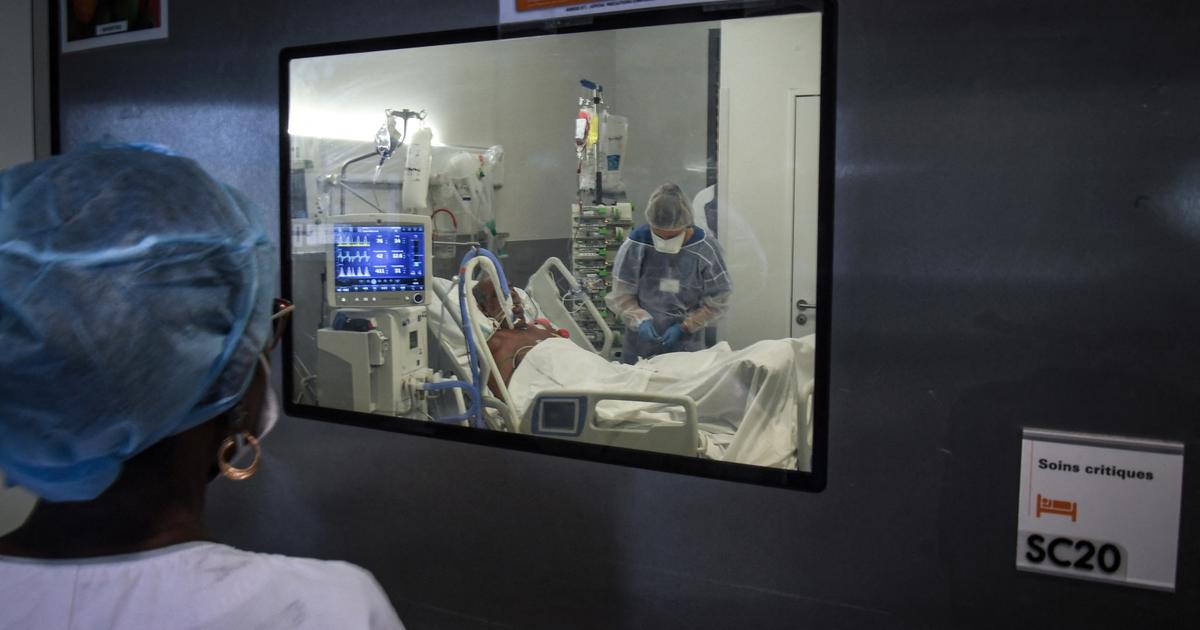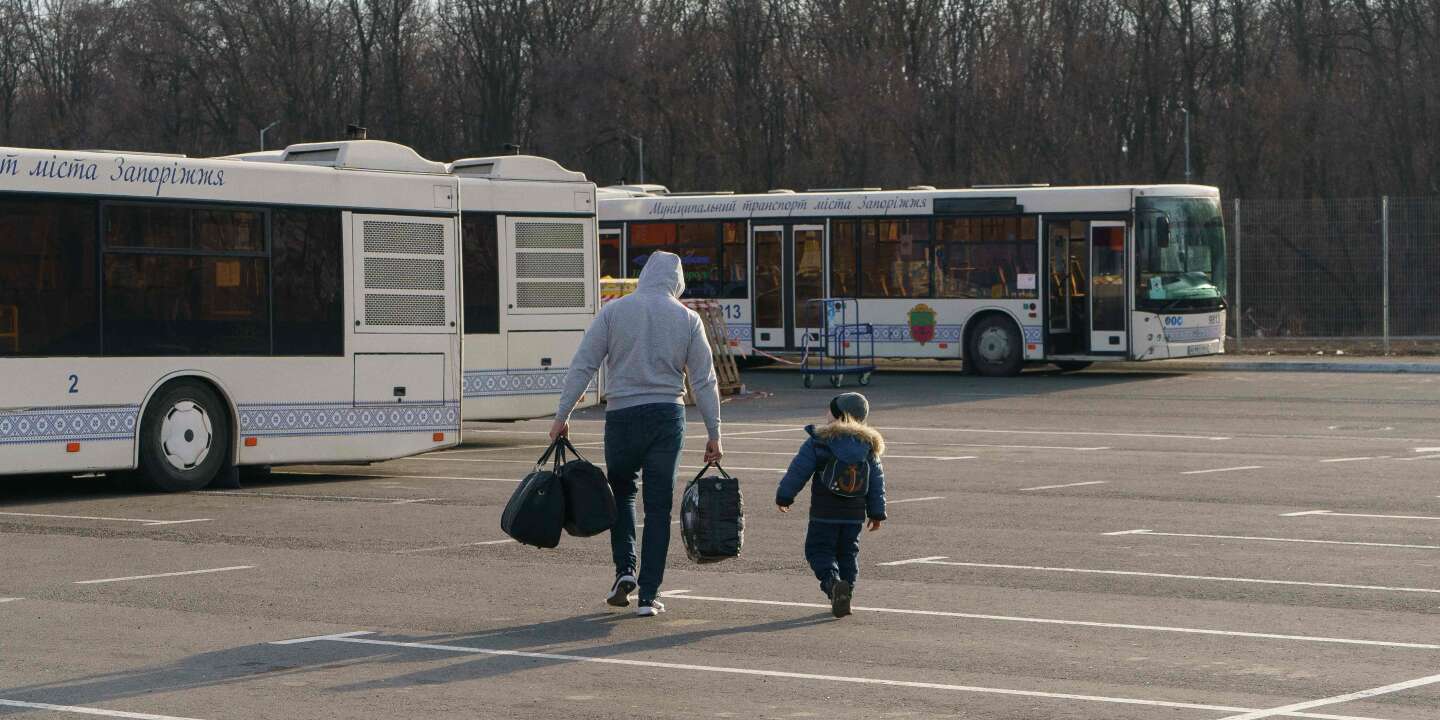
UPDATE ON THE SITUATION – New measures, new reports and highlights: Le Figaro takes stock of the latest developments in the Covid-19 pandemic.
End of Overseas Territories Health Emergency, Increase in Covid Testing, Shanghai Admits Inadequate Preparation for Covid… Le Figaro provides an update on the latest information related to the Covid-19 pandemic on Thursday, March 31.
Read the fileCovid-19: the coronavirus pandemic in numbers and infographics
21,922 hospitalized patients in France.
The epidemic continues in France, where 121 people have died in the past 24 hours, according to results from Public Health France. Currently, 21,922 patients have been hospitalized this Thursday (up from 21,687 Wednesday), including 1,763 in the past 24 hours. 1,551 patients are treated in intensive care units, compared to 1,546 the day before. 169,311 new cases have also been detected in the past 24 hours, compared to 169,024 the day before. The positivity rate continues to rise and is now at 31.2%.
Read alsoOmicron ‘subvariant’ one and a half times more infectious than original, study finds
End of State of Emergency in All Overseas Territories
The public health emergency will be lifted at midnight on Thursday evening in all overseas territories where it still applies, in the Antilles, Reunion and New Caledonia, the overseas ministry told AFP on Thursday. The prefectures of Martinique and Guadeloupe on Wednesday specified in a press release the modalities of this lifting of the most restrictive measures. The prefecture of Guadeloupe announced the end of the curfew and the wearing of mandatory masks in public areas from Friday. Showing the health card in institutions open to the public is no longer mandatory from Monday.
Read alsoCovid-19: what are the conditions to travel to Corsica and abroad?
The prefecture of Martinique, in turn, states that: “The curfew is abolished and common law opening hours apply to restaurants and drinking establishments”, from April 1. However, wearing a mask remains mandatory in Martinique until April 9 in public places “highly recommended” in all closed places, adds the press release. Even after the state of emergency on these islands of the Antilles has been lifted, certain measures will remain in force: the vaccination obligation for nursing staff, the wearing of face masks in public transport and the health card in healthcare institutions.
Read alsoCovid: end of state of emergency in all overseas territories
The number of Covid tests is going up again, their price is falling again
The number of Covid-19 screening tests, which started rising again in early March, rose a further 27% last week, according to figures released Thursday by the health ministry. The revival is looking like a new wave: more than 3.8 million antigenic and PCR tests were performed between March 21 and 27, compared to just under 3 million the week before, the Statistics Department (Drees) said in a press release. This third consecutive increase confirms the clear resumption of impressions, especially among 16-year-olds, after two months of decline from January to early March.
In this context, and given the volume “very important” of the antigen tests already reimbursed since the beginning of the year (more than 45 million), the government has decided to cut their prices again from Friday, according to a decree published in the Official Gazette on Thursday. The price in pharmacies falls from 20 to 16.50 euros, or 23% less. For the other professions authorized to carry out tests (doctors, nurses, physiotherapists, midwives, dentists), the reduction will be slightly more than EUR 4, or between 20% and 30% as the case may be.
” ALSO SEE – Covid tests: “We are really burned out,” warns a pharmacist
Hospital: Senate report recommends ‘electroshock’ after pandemic
Caregivers must have a “fair financial recognition”Get out of “The Morality of Volunteering” and be better represented on hospital boards, according to a Senate report released Thursday calling for “electric shock” in hospital management. The Commission of Inquiry was set up after a study in October 2021 on the closure of beds by the Scientific Council. The parliamentarians demand the continuation of the efforts of the Ségur de la Santé announced in 2020, especially in the area of compensation. consultations “too late” and “extensions without general reflection” did that in between “forgotten of Segur”† “bitterness” born “do not dry up”, regret the senators. And this is even more true following a Covid-19 pandemic described in the report as indicative of “latent crises” in healthcare institutions.
Read alsoHospital: Senate report recommends “electroshock” after pandemic
Facing Covid, Shanghai admits “inadequate” preparation
“Insufficient preparations”: A senior Shanghai official admitted on Thursday that the Chinese economic capital was not quite ready to deal with the current Covid outbreak, which is forcing the city to limit its 25 million inhabitants. The metropolis is facing the worst wave of infection since the start of the epidemic. The Omicron variant puts pressure on the national “zero Covid” strategy, which wants to do everything it can to prevent new cases. Shanghainese living in the eastern part of the city (Pudong) have been confined to their homes since Monday morning and are subject to general screening. This confinement will last until Friday morning, when the West (Puxi) will start ringing a bell.
” ALSO SEE – Covid-19: Health restrictions tighten in China’s northeast
Covid: we are best protected with a vaccine and an infection
The people best protected from Covid-19 are those who have been both vaccinated and infected, according to two studies published Friday. These two works, published in the Lancet infectious diseasesprovide some answers to a hotly debated scientific question: are we better protected against the disease after infection or after vaccination?
These studies underline that a former Covid patient has every interest in getting vaccinated in order to boost the immunity he has already acquired from his previous infection. The first of these works is based on the health data of more than 200,000 Brazilians. In this sample, some individuals were infected without being vaccinated. Of those who survived the disease, some received a vaccine – Pfizer/BioNTech, AstraZeneca, Sinovac or Johnson & Johnson/Janssen – and some did not.
Gold, “These four vaccines appear to provide additional and substantial protection to people previously infected with Covid-19”, notes one of the authors, Julio Croda. This protection is more or less important: the risk of hospitalization or death is reduced by 90% at Pfizer/BioNTech and AstraZeneca, about 80% at Sinovac, but only slightly more than half at Johnson & Johnson.



